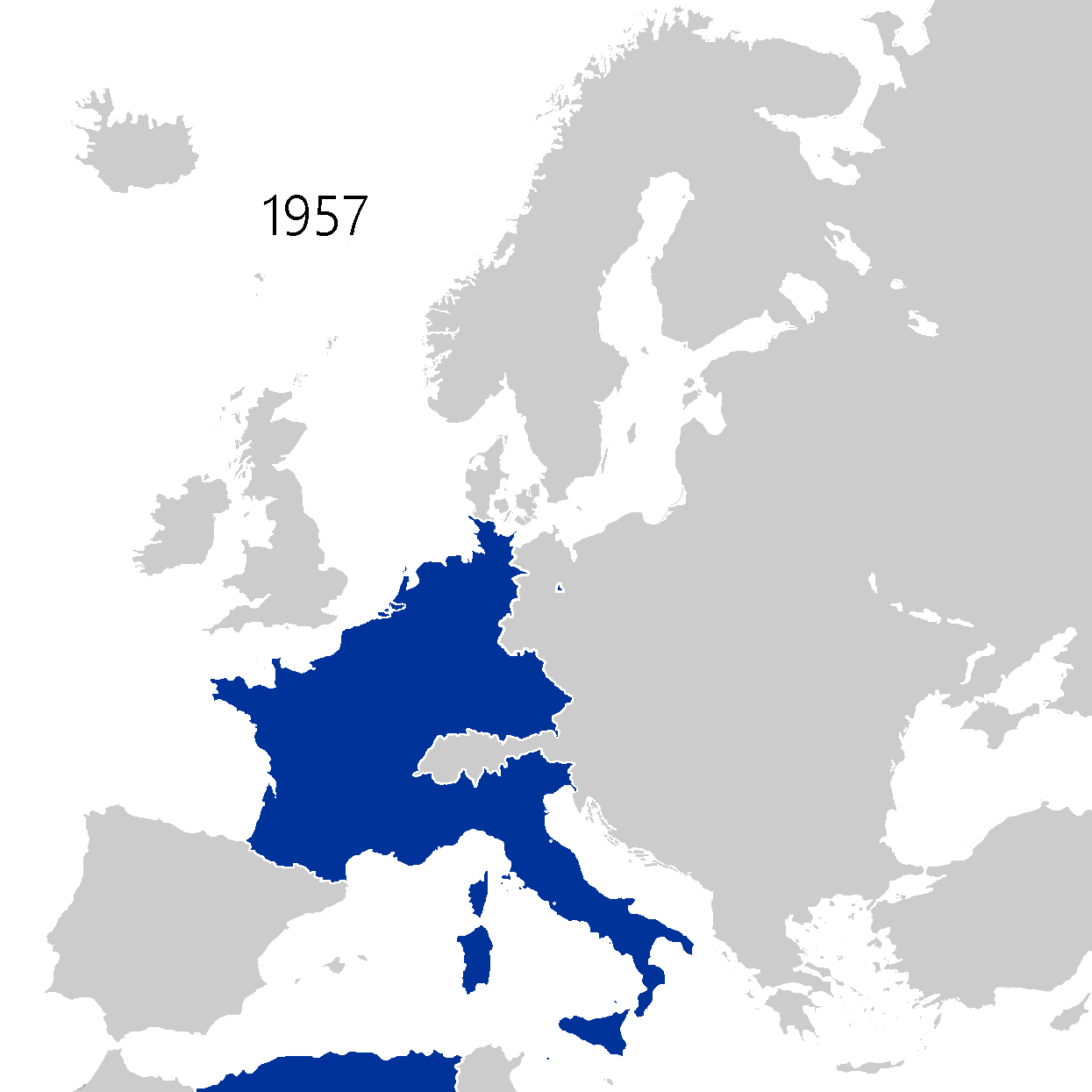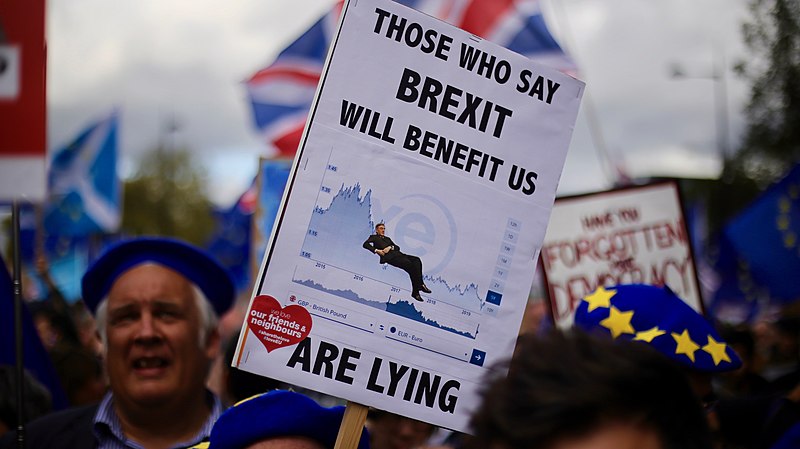21.4: The European Union
- Page ID
- 132625
After World War II, most of the nations of western Europe sought to improve economic relations and trade between non-communist member countries. This action culminated in the creation of the European Community (EC) in 1967. Despite various setbacks, not the least the enmity between French and British politicians, the EC steadily added new members into the 1980s. In addition to trade, the EC's leadership began to discuss the possibility of aligning currency, law, and policy more closely between countries. This larger vision was originally conceived in hopes of creating a power-bloc to rival the two superpowers of the Cold War.
In 1993, the EC officially became the European Union. In the following years, various member nations of the former EC voted to join the new entity. Over time, requiring a passport to visit other EU member states was eliminated. The member nations agreed to ensure civil rights throughout the Union, as well as economic agreements (e.g. limitations on national debt) meant to foster overall prosperity. Most spectacularly, at the start of 2002, the Euro became the official currency of the entire EU except for Great Britain, which clung tenaciously to the British Pound.
Between 2002 and 2008, the architects of the EU achieved relative success. The economies of Eastern European countries in particular accelerated, along with a few unexpected western countries like Ireland. Loans from wealthier members to poorer ones, generally clustered along the Mediterranean, meant that none of the countries of the “Eurozone” lagged too far behind. While the end of passport controls at borders worried some, there was no general immigration crisis to speak of.
Since the financial crisis of 2008, the EU has been fraught with economic problems.
The major issue is that member nations cannot control their own economics past a certain point.
- they cannot devalue currency to deal with inflation
- they are nominally prevented from allowing their own national debts to exceed a certain level of their Gross Domestic Product (3%, at least in theory)
As a result, weaker economies, such as Spain, Italy, or Greece, find it difficult to maintain or restore economic stability. Instead, Germany ended up serving as the EU’s banker, issuing loan after loan to other EU states while dictating economic and even political policy to them.

Another shocking development was Great Britain's decision to leave the Union entirely in 2016 based on its citizens' votes. The United Kingdom officially left the EU on January 31, 2020. That same year, in December, the EU–UK Trade and Cooperation Agreement (TCA) was signed between the European Union (EU), the European Atomic Energy Community (Euratom), and the United Kingdom (UK), which focuses on free trade. The political and economic consequences remain unclear: the British economy has been deeply enmeshed with that of the EU nations since the end of World War II, and it is simply unknown what effect “Brexit” will have in the long run.
NOTE: The residents of Scotland and Northern Ireland both voted to remain in the EU, but their votes were outweighed by the English and they will be forced to leave along with the rest of the UK. The Republic of Ireland will remain an EU member, which will complicate the situation on the border between Ireland and British Northern Ireland.


